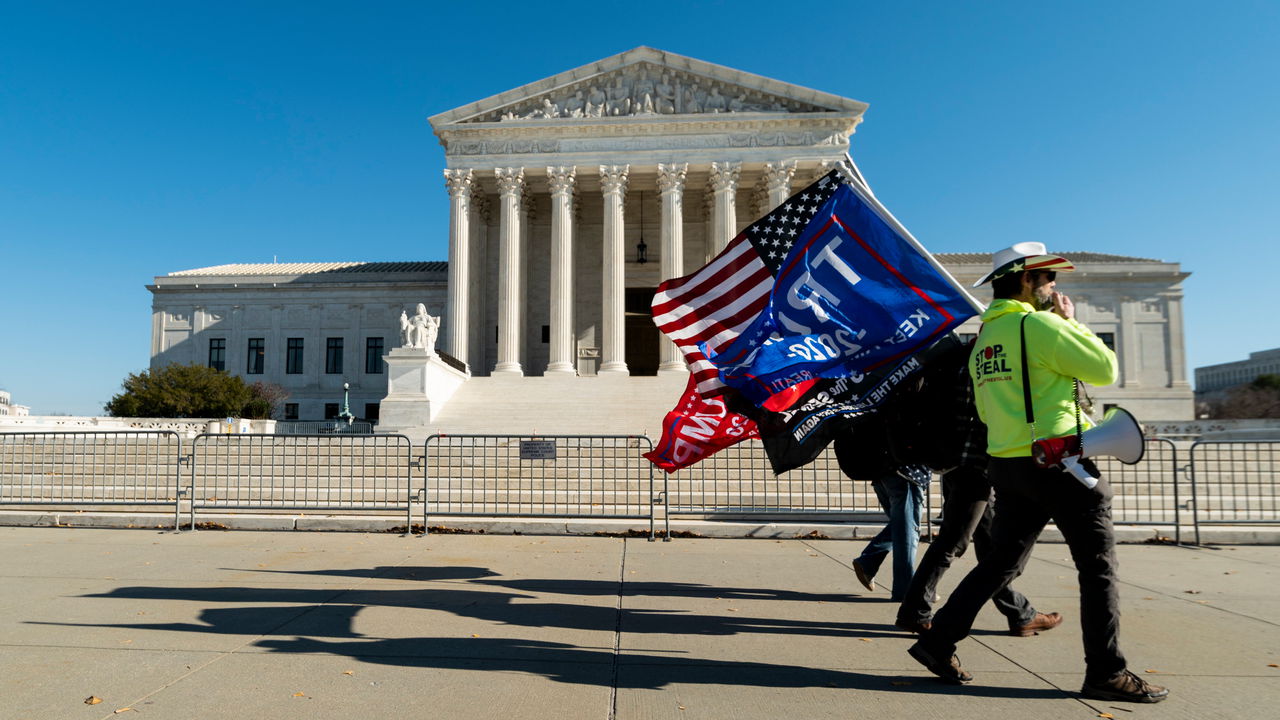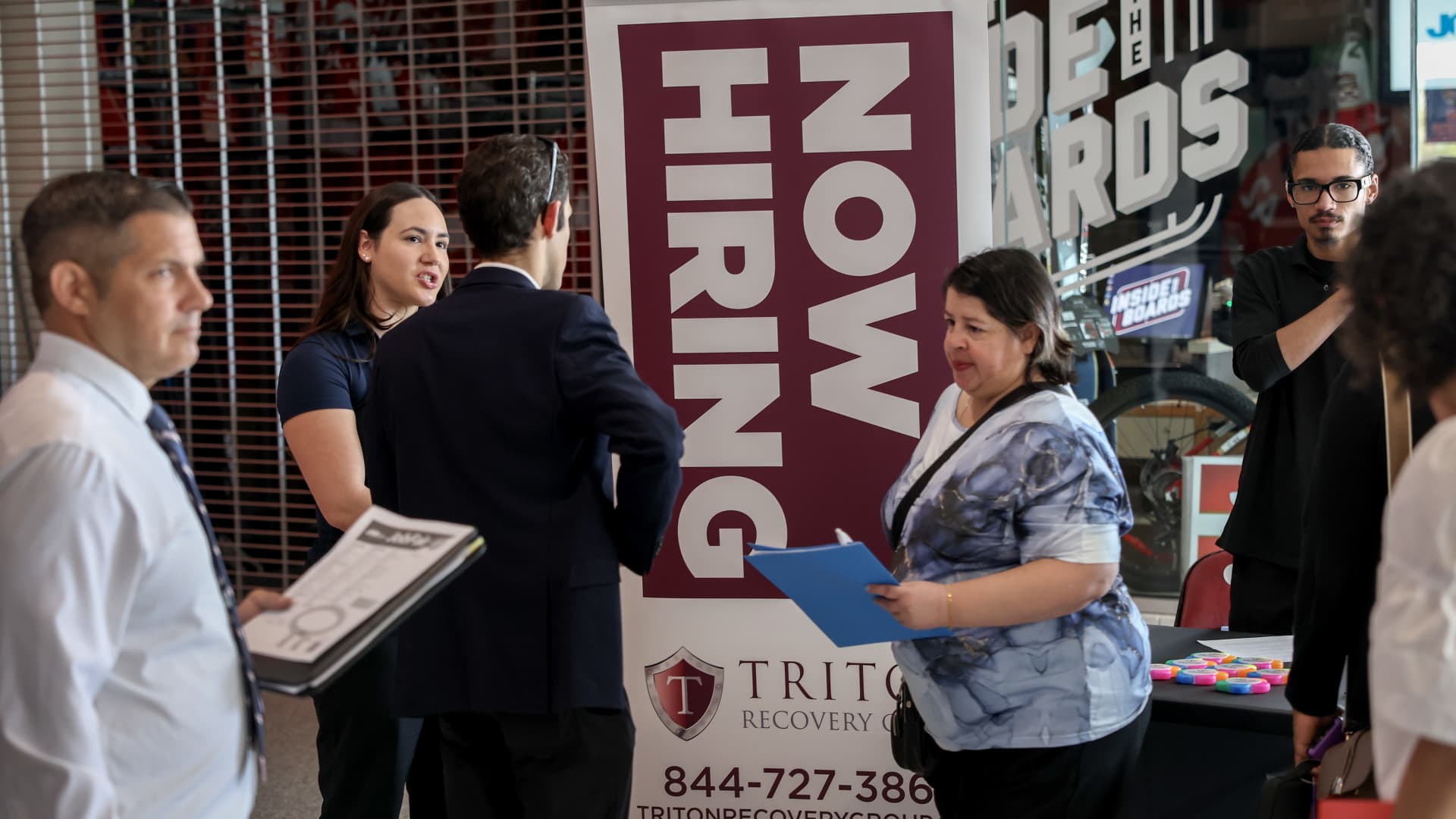WHEN HE RAN for president in 2016, Donald Trump released two lists of potential justices to assure Republicans he would choose conservatives to fill Supreme Court vacancies. He issued a third list in 2017 and final roster in 2020—days before Ruth Bader Ginsburg’s death allowed him to cement a 6-3 conservative majority on America’s highest court.
Mr Trump recently said his campaign has turned listless because he “no longer need[s]” to shore up his conservative bona fides. Indeed, thanks to Mr Trump the court has overturned Roe v Wade, bolstered gun rights, hobbled administrative agencies, battered the wall separating church from state and all but immunised presidents from criminal prosecution. With large majorities deploring the end of Roe and the court’s popularity in the dumps, announcing plans to push the court still further to the right may not be an enticement to swing voters. Still, if he is re-elected Mr Trump may get to appoint at least two more justices, because both Justice Clarence Thomas and Justice Samuel Alito might decide to go on his watch to keep the court conservative. That would take him to a total of five justices, a feat only a handful of presidents have managed.
Who would they be? The Centre for Judicial Renewal, a wing of the American Family Association, a religious-right organisation, trumpets five candidates and warns Mr Trump off four judges he appointed to circuit courts because, among other things, one (Amul Tharpar) used a transgender litigant’s preferred pronouns and another (Neomi Rao) converted to Judaism. One of its “green rating” picks, chosen for his “biblical worldview” (one of its ten attributes of a “constitutional judge”) is James Ho, who was tapped by Mr Trump in 2017 for a seat on an appellate court—and who appeared on his 2020 Supreme Court list.
Judge Ho is the most combative jurist on the Fifth Circuit Court of Appeals, America’s most conservative intermediate court. Even on a tribunal that forces right-wing causes backed by dubious legal principles onto the Supreme Court’s docket, Judge Ho distinguishes himself.
In June, writing for a unanimous Supreme Court, Justice Brett Kavanaugh laid out an error in a ruling by Judge Ho and two colleagues that had rolled back access to mifepristone, an abortion medication. The pro-life doctors challenging the Food and Drug Administration’s regulations, Justice Kavanaugh explained, lacked the right to sue because the mifepristone rules had caused them no harm. No mention was made of Judge Ho’s peculiar argument that doctors who “delight in working with their unborn patients” can challenge rules governing abortion pills because they “experience an aesthetic injury” when fetuses are aborted.
The contention that doctors have standing to oppose a medication because it strips them of “a source of profound joy” is not Judge Ho’s only injection of far-fetched positions—and personal scruples—into his jurisprudence. Early in his tenure he wrote of the “moral tragedy of abortion” in a case involving a Texan law requiring the burial of fetal remains. As solicitor-general of Texas in 2009, he wrote a brief describing the right to bear arms as “the ultimate guarantor of all the other liberties enjoyed by Americans”. Two years ago, a covid public-health measure in Mississippi challenged by Golden Glow, a tanning salon, spurred Judge Ho to call for a return to Lochner v New York—the decision that struck down decades of worker protections until the Supreme Court abandoned it in 1937.
Judge Ho also regularly inserts himself into culture-war battles, boycotting graduates of Yale and Columbia for clerkships and lashing out at critics. This outspokenness beyond his chambers is in stark contrast to the more reserved man he could succeed under a second Trump presidency, Justice Thomas. At 76, he is the oldest, and longest-serving, sitting justice. But like Justice Thomas, Judge Ho, aged 51, purports to interpret the constitution in light of its original meaning. Both men seem to have idiosyncratic impressions of that meaning, often writing only for themselves to articulate a position none of their fellow jurists are willing to defend. The ties are intimate: Justice Thomas hired Mr Ho as a law clerk in 2005 and, 13 years later, administered his oath of office in the personal library of Harlan Crow, the right-wing billionaire from whom Justice Thomas has accepted luxury trips, raising ethics concerns.
Judge Ho has a colleague on the Fifth Circuit who could also find himself elevated if the justice he clerked for in 2008—Samuel Alito—retires. Andrew Oldham, aged 46, may lack Judge Ho’s bombast, but his views on the law are just as radical. During his confirmation hearing in 2018, Judge Oldham declined to say whether Brown v Board of Education, a ruling that declared segregation in schools unconstitutional, was correctly decided. He has pursued a deregulatory agenda on the Fifth Circuit that has, at times, found friendly majorities at the Supreme Court. On October 25th, he wrote for Judge Ho and another short-list pick of the Centre for Judicial Renewal, Judge Kyle Duncan, that counting mail-in ballots postmarked by election day but received a few days later is illegal—despite the long-standing practice being adopted in nearly half of America’s states.
If Republicans take control of the White House and Senate in January, little will stand in the way of Mr Trump seating the likes of Judges Ho and Oldham. Their prospects may turn on the Senate margin; with at least a 52-48 gap, Mr Trump could afford to lose Lisa Murkowski and Susan Collins, two moderate Republicans, and still eke out enough yeas to entrench a MAGA Supreme Court for a generation. ■

 Economics1 week ago
Economics1 week ago
 Economics6 days ago
Economics6 days ago
 Personal Finance6 days ago
Personal Finance6 days ago
 Accounting7 days ago
Accounting7 days ago
 Blog Post3 days ago
Blog Post3 days ago
 Personal Finance1 week ago
Personal Finance1 week ago
 Economics1 week ago
Economics1 week ago
 Finance6 days ago
Finance6 days ago










